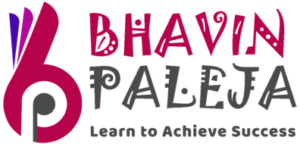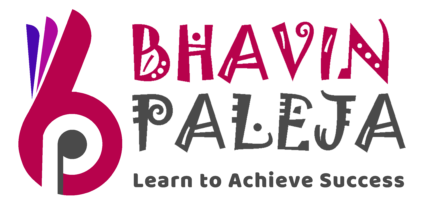HTML (HYPERTEXT MARKUP LANGUAGE)
Duration: 1 Months
Fees: ₹ 3000/-
Batch Time: 2 Hours from Monday to Saturday
Contact for Available / Preferable Batch Timings (Also for weekends)

Course Description
HTML (Hypertext Markup Language) is the standard markup language used to create web pages and web applications. HTML is used to structure content on a web page and to provide context and meaning to that content. HTML consists of a series of tags that are used to markup content and to specify how it should be displayed on a web page.
HTML provides a way to structure text, images, audio, video, and other forms of content on a web page. It allows web designers to create hyperlinks between web pages and to specify how the page should look and behave in a web browser. HTML is also used to create forms, tables, and other interactive elements on a web page.
HTML is a key component of web development and is essential for anyone looking to create websites or web applications. HTML can be used in combination with other web technologies such as CSS (Cascading Style Sheets) and JavaScript to create dynamic and responsive web pages. Proficiency in HTML is a valuable skill for web designers, web developers, and anyone involved in creating web content.
Course Eligibility
HTML (Hypertext Markup Language) is the standard language used for creating web pages and is an essential skill for anyone interested in web development, web design, or digital marketing. Here are some groups of people who might find it particularly useful to take a course in HTML:
- Web developers and designers: HTML is an essential tool for web developers and designers, who use it to create the basic structure and content of web pages. Knowledge of HTML is a prerequisite for anyone interested in building a career in web development or design.
- Digital marketers: Digital marketers who work with websites, social media, or email marketing can benefit from learning HTML. It can help them create and edit landing pages, emails, and other online content, without having to rely on a developer.
- Students pursuing courses in computer science or IT: HTML is often included in the curriculum of computer science or IT courses. Students who take a course in HTML can gain hands-on experience with the language and learn how to create and edit web pages.
- Job seekers: Many job postings in web development, web design, and digital marketing require knowledge of HTML. Job seekers who have experience with HTML are more likely to be competitive in the job market.
Overall, anyone interested in web development, web design, or digital marketing can benefit from learning HTML. It is a foundational skill for creating and editing web pages, and it can open up many career opportunities in the digital space.
Course Opportunities
Proficiency in HTML can lead to various career options in the field of web development and design, such as:
- Web Developer: HTML is a fundamental component of web development, and proficiency in HTML is essential for web developers to create and maintain websites and web applications.
- Front-End Developer: HTML, along with CSS and JavaScript, is one of the core technologies used by front-end developers to create the user interface and user experience of a website.
- Web Designer: Web designers use HTML to structure the content of a website and create the visual layout and design of the website.
- UX Designer: HTML is used by UX designers to create wireframes and prototypes of websites and web applications to test and improve the user experience.
- Content Manager: HTML is used to create and manage content on websites and web applications. Proficiency in HTML is valuable for content managers to ensure that content is structured and formatted correctly.
- Technical Writer: HTML is used in technical writing to create documentation, such as user manuals and online help, for web applications and software.
Overall, proficiency in HTML can lead to various career options in web development, web design, and content creation. As the demand for web-based applications and services continues to grow, proficiency in HTML will continue to be a valuable skill in the job market.
Course Syllabus
- Introduction to HTML
- What is HTML
- HTML documents
- Basic structure of HTML Documents
- Creating HTML documents
- Mark up tags
- Heading paragraphs
- Line breaks
- HTML Tags
- Elements of HTML
- Introduction of elements of HTML
- Working with text
- Working with Lists, Tables and Frames
- Working with Hyperlinks, Images and Multimedia
- Working with forms and controls
- Project
Course FAQs
Q: What is HTML?
A: HTML (Hypertext Markup Language) is a standard markup language used for creating web pages and web applications. It defines the structure and content of a webpage using tags and attributes, which are interpreted by web browsers to render the webpage on the internet.
Q: What is covered in an HTML course?
A: An HTML course typically covers the basics of HTML, including understanding HTML syntax, working with HTML tags, creating web page structure, using HTML attributes, creating links, adding images, working with tables, forms, and more. It may also cover advanced topics such as HTML5 features, multimedia elements, and responsive web design.
Q: What are the benefits of taking an HTML course?
A: Taking an HTML course can provide several benefits, including:
Web development skills: Learning HTML is the foundation of web development and can help you gain the skills needed to create web pages and web applications.
Career opportunities: HTML skills are in high demand in the field of web development, and having HTML skills can open up career opportunities in web design, web development, and related fields.
Creativity and customization: HTML allow you to create customized web pages with different elements, styles, and layouts, giving you the creative freedom to design unique websites.
Understanding web structure: Learning HTML helps you understand the structure of web pages, how different elements are organized, and how they interact with each other, which is essential for web development.
Collaboration with web developers: If you work closely with web developers, learning HTML can help you communicate effectively and collaborate with them in developing web projects.
Q: Can I take an HTML course online?
A: Yes, there are many online platforms that offer HTML courses. These courses provide flexibility in terms of schedule, pace of learning, and often offer interactive learning experiences through tutorials, practice exercises, and assessments. Online courses can be a convenient and cost-effective way to learn HTML skills.
Q: Do I need any prior coding experience to take an HTML course?
A: No, an HTML course is typically designed for beginners and does not require any prior coding experience. However, having basic computer literacy and familiarity with web browsing would be beneficial.
Q: Are there any certifications available for HTML?
A: While there are no specific certifications for HTML, there are certifications available for web development, such as the Web Developer Certification offered by organizations like W3Schools, which includes HTML as one of the key components. These certifications can validate your web development skills, including HTML, and enhance your employability in the web development job market.
Q: How long does it take to complete an HTML course?
A: The duration of an HTML course depends on the level of proficiency you want to achieve and the specific course or program you choose. It can range from a few weeks to several months, depending on the course content and your pace of learning. However, with regular practice and dedication, you can learn HTML relatively quickly.
Q: Can I use HTML on different platforms and devices?
A: Yes, HTML is a standard markup language that can be used on different platforms and devices, including desktops, laptops, tablets, smartphones, and more. HTML is interpreted by web browsers, which are available on various platforms and devices, making it accessible and usable across different devices and platforms.
Q: Is HTML the only language used for web development?
A: No, HTML is just one of the core languages used for web development. Along with HTML, other technologies such as CSS (Cascading Style Sheets) for styling web pages, JavaScript for adding interactivity and dynamic content, and server-side scripting languages such as PHP, Python, and Ruby are also commonly used in web development. However, HTML forms the foundation for creating the structure and content of web pages.



